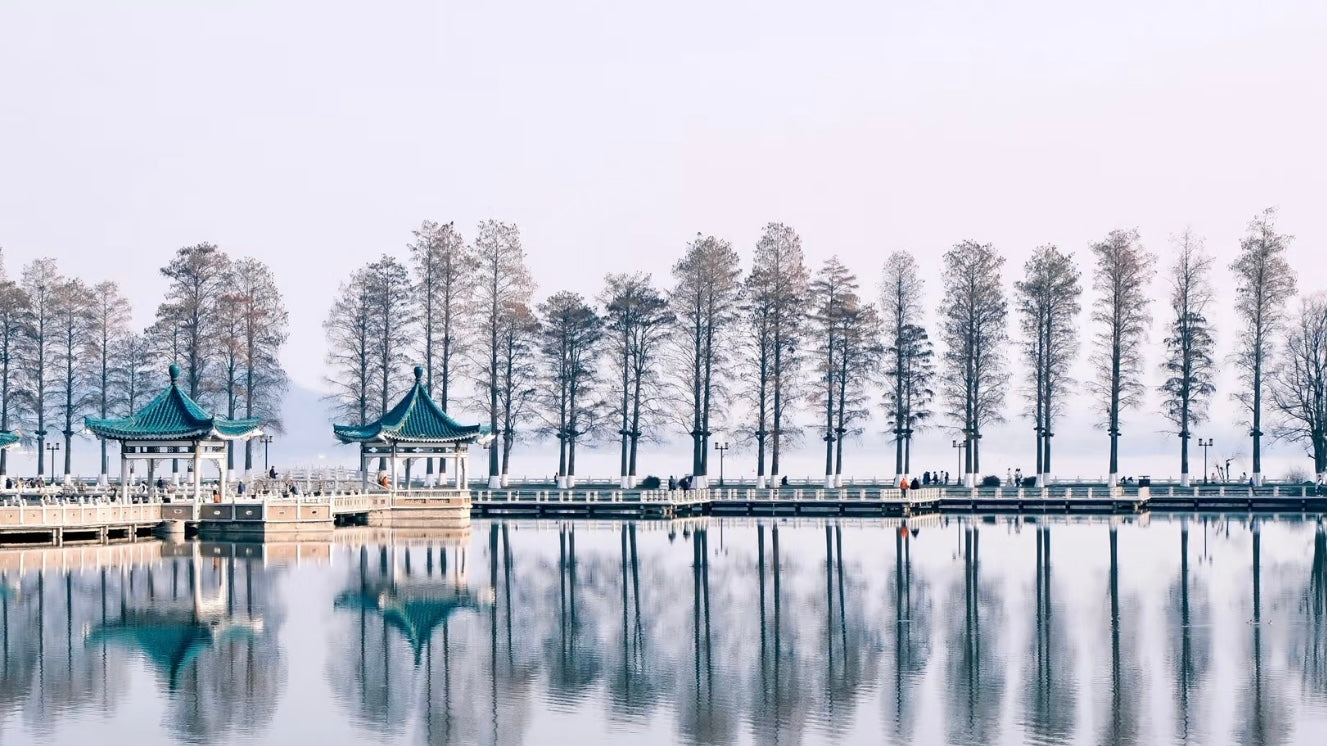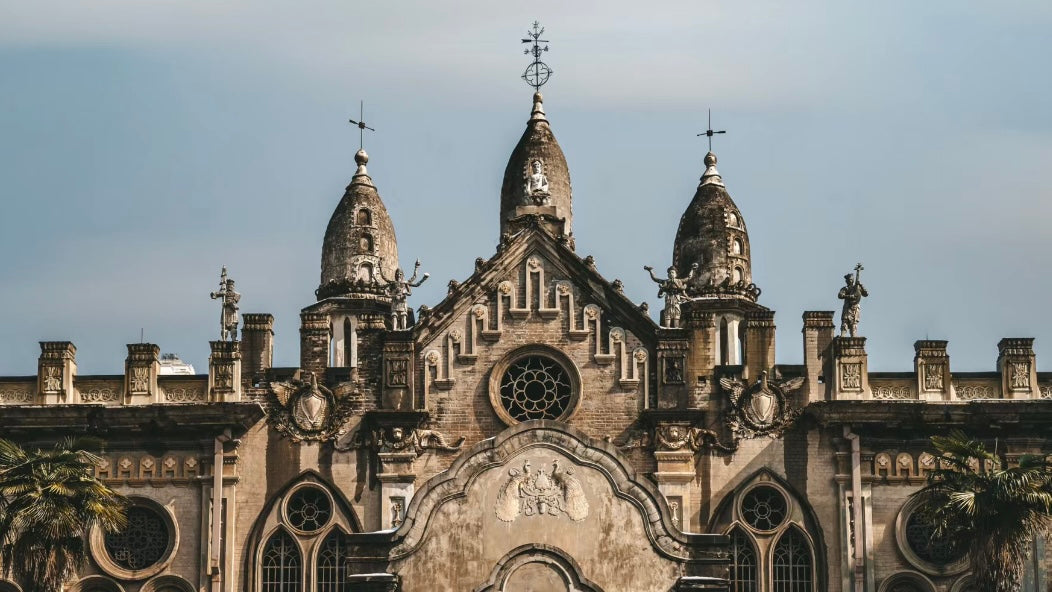In the heart of Wuhan, where the Yangtze River carves through a dynamic blend of modernity and history, lies East Lake (东湖, Donghu)—China’s largest urban lake and one of the most cherished cultural landmarks in Hubei. This guide to East Lake will help you explore its scenic beauty, seasonal highlights, and local secrets like a true insider.

Why Visit East Lake? A Natural and Cultural Treasure
Unlike many urban lakes that serve only recreational functions, East Lake is deeply interwoven with Wuhan’s identity. It has inspired poets, painters, and revolutionaries, and continues to shape local culture and daily life.
🌿 It’s huge – Larger than both West Lake in Hangzhou and Kunming Lake in Beijing.
🧭 It’s diverse – Divided into several scenic areas, each with unique charm.
🌸 It’s seasonal – Cherry blossoms in spring, lotus ponds in summer, golden forests in fall, and snow-kissed pavilions in winter.

Things to Do at East Lake in Wuhan
📍Explore the East Lake Greenway by Bike (Tingtao Scenic Area)
Best for: Art lovers, casual strollers, cyclists
Tingtao means "Listening to the Waves." This section features willow-lined paths, art installations, and the renowned East Lake Greenway, with 13 themed rest stops including calligraphy walls and cultural pavilions.

Highlights:
-
Rent a bike at golden hour for a peaceful lakeside ride.
-
Catch open-air performances at the Tingtao Music Stage.
📍Discover Revolutionary Sites on Ma’an Hill
Best for: History buffs, cultural enthusiasts
Explore Ma’an Hill, home to Chairman Mao Zedong’s former villa, preserved with mid-century interiors and historical memorabilia.
Visit:
-
Mao Zedong’s Former Residence
-
Ma’an Hill Pagoda – Offering panoramic views of East Lake.

📍Birdwatch at Luoyan Island
Best for: Nature lovers, photographers
This peaceful island features wetlands, reed marshes, and migratory birds.
Top Activities:
-
Early morning boat ride through misty reed mazes.
-
Quiet walks on wooden trails ideal for meditation and photos.

📍Experience Lotus Season on Chuidi Island
Best for: Romantic strolls, summer visits
Known for ancient poetry and towering lotus blooms, this area is most magical in July–August.
Must-See:
-
Lotus Festival
-
Flute Sound Pavilion (吹笛轩) – A dreamy spot perfect for reflection.
Seasonal Highlights at East Lake
🌸 Spring (March–April)
-
Cherry blossoms in Moshan Hill (5,000+ trees).
-
Wildflowers along the Greenway.
🌿 Summer (June–August)
-
Lotus blooms in Chuidi.
-
Shady cycling paths and cool lake breezes.
🍁 Autumn (October–November)
-
Red maple leaves and golden ginkgo trees near Tingtao.
-
Ideal weather for boating or picnicking.
❄️ Winter (December–February)
-
Peaceful, frosted scenery with fewer tourists.
-
Great for quiet photography.
What NOT to Do at East Lake
🚫 Don’t feed wildlife – Protect the delicate ecosystem.
🚫 Don’t pick flowers or enter lotus ponds – Protected areas with seasonal enforcement.
🚫 Don’t litter – Help keep East Lake beautiful for everyone.
🚫 Don’t fly drones without permission – Scenic zones have restrictions.
Practical Travel Tips for Visiting East Lake
🎟 Entrance Fees
Many areas are free. Some, like the botanical gardens or Chu Culture Park, cost ¥20–¥40.
🚲 Bike Rentals
-
Shared bikes available at entrances.
-
Rent electric or tandem bikes for longer rides.
🕘 Best Times to Visit
-
7:00–10:00 AM: Quiet, soft lighting.
-
4:00–6:00 PM: Sunset reflections, golden hour.
🛶 Boating Options
Choose between paddle boats, rowboats, or small ferries—perfect for romantic or family outings.
🍜 What to Eat Nearby
-
Fried lotus root sandwich (藕夹) – Local specialty.
-
Doupi (豆皮) – A layered rice pancake wrapped in tofu skin.
-
Hot dry noodles (热干面) – Wuhan’s breakfast essential.
Why Explore East Lake with Bridge To Locals?
✨ Go beyond the guidebooks—learn the stories behind every scenic zone.
✨ Visit secret gardens, hidden pavilions, and untouristed lakeside paths.
✨ Pair your journey with a poetry walk, tea ceremony, or a moonlit lake cruise, arranged by our local hosts.
FAQs About East Lake in Wuhan
1. What is East Lake famous for?
East Lake is the largest urban lake in China, known for cherry blossoms, lotus festivals, and its deep cultural connections to Wuhan’s history.
2. When is the best time to visit East Lake?
Spring (for cherry blossoms) and summer (for lotus blooms) are the most picturesque.
3. Is East Lake free to enter?
Yes, most areas are free. Some cultural parks charge a small fee.
4. Can you rent bikes at East Lake?
Absolutely! Shared bikes and e-bikes are widely available.
5. What local foods can I try around East Lake?
Try local snacks like hot dry noodles, doupi, and fried lotus root sandwiches.







Leave a comment
This site is protected by hCaptcha and the hCaptcha Privacy Policy and Terms of Service apply.